Skip over navigation
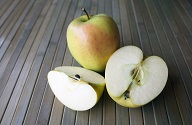
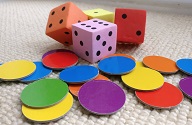
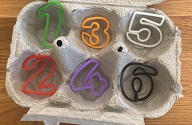
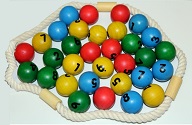
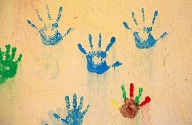
Or search by topic
Number and algebra
Geometry and measure
Probability and statistics
Working mathematically
Advanced mathematics
For younger learners
Baskets
Age 3 to 5
Counting reliably
Solving problems, including doubling, halving and sharing
Using everyday language to talk about size, capacity, position and distance
Solving problems, including doubling, halving and sharing
Using everyday language to talk about size, capacity, position and distance





Children often enjoy putting their things in containers and sharing with friends (whether equally or not!).
Adults could provide an assortment of objects that are small enough for the children to hold in their hands.
The Activity
Place some baskets (probably 3 to 8) in the middle of a suitable space along with the objects which should be near to, but not in, the baskets.
Place some baskets (probably 3 to 8) in the middle of a suitable space along with the objects which should be near to, but not in, the baskets.
Encouraging mathematical thinking and reasoning:
Describing
Tell me about what you have in this basket.
What happened when you put that in?
Tell me about what you have in this basket.
What happened when you put that in?
Reasoning
How could you have more ... in your basket?
Have look at ...'s baskets. Are they the same? What makes that one different?
How could you have more ... in your basket?
Have look at ...'s baskets. Are they the same? What makes that one different?
Opening Out
Can you find another way to put them in the baskets?
We've all got ones that look different. Could you make everyone's the same? Would you need a different basket? Why?
Can you find another way to put them in the baskets?
We've all got ones that look different. Could you make everyone's the same? Would you need a different basket? Why?
Recording
Could you find a way of keeping your ideas for this basket, maybe on paper, or...? Do you want to make a label?
Could you find a way of keeping your ideas for this basket, maybe on paper, or...? Do you want to make a label?
The Mathematical Journey
Properties of shapes:
- choosing particular baskets for particular objects having analysed the properties of the shapes involved
Position and spatial properties:
- using positional language, e.g. on top of, next to, underneath, in front of, behind, between, left, right, etc. to describe the items in the baskets and the positions of the baskets themselves
Number:
- counting and cardinality - progressing from knowing some number words, to saying one number for each object, then knowing the number of the whole group
Development and Variation
- This activity may be started with a small group of children. Once the whole class has been involved, you may find some go off in a very small group of two or three to explore something similar independently.
- There may be situations in the role play area that lend themselves to putting items in baskets or dishes etc.
- You could suggest putting baskets inside other baskets and/or using drawstring bags of different sizes.
- Introduce something too big to go in a basket and let the discussion follow.
- You may find that the idea of sharing items between the baskets comes up naturally - sometimes children might share equally and sometimes not.
Resources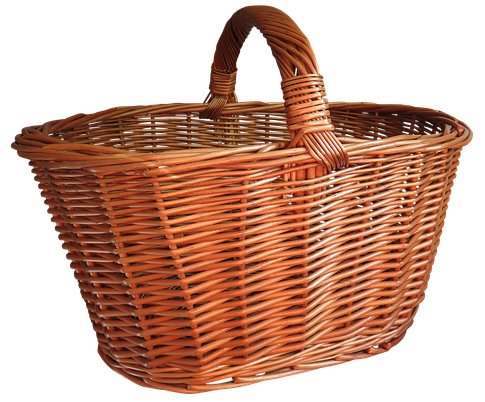

- A variety of different baskets (perhaps 3-8 in total).
- Collections of things that you already have in your setting e.g. small world play figures, cotton reels, pegs etc.
- A camera may be useful to take photos during the activity.
Download a PDF of this resource.


